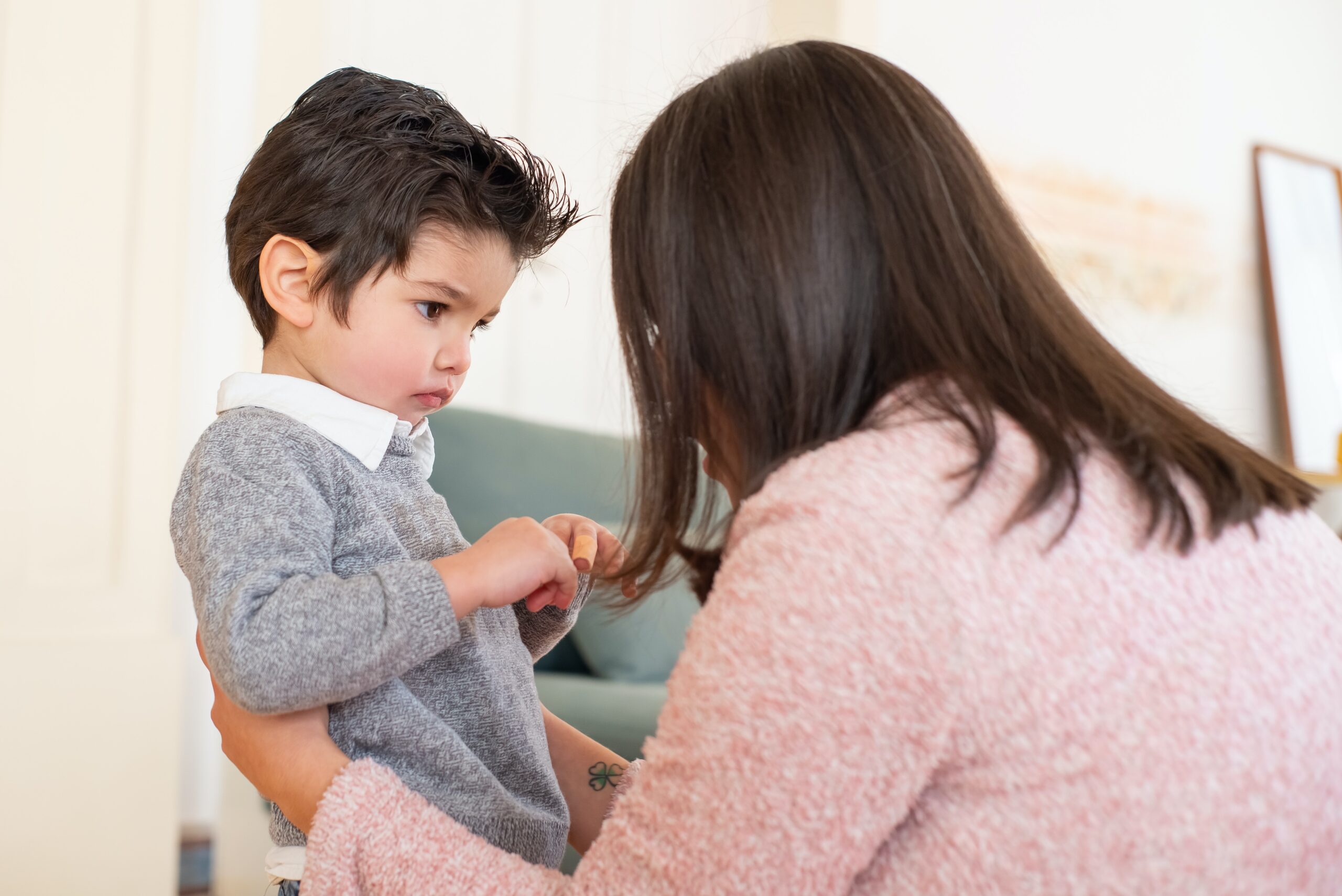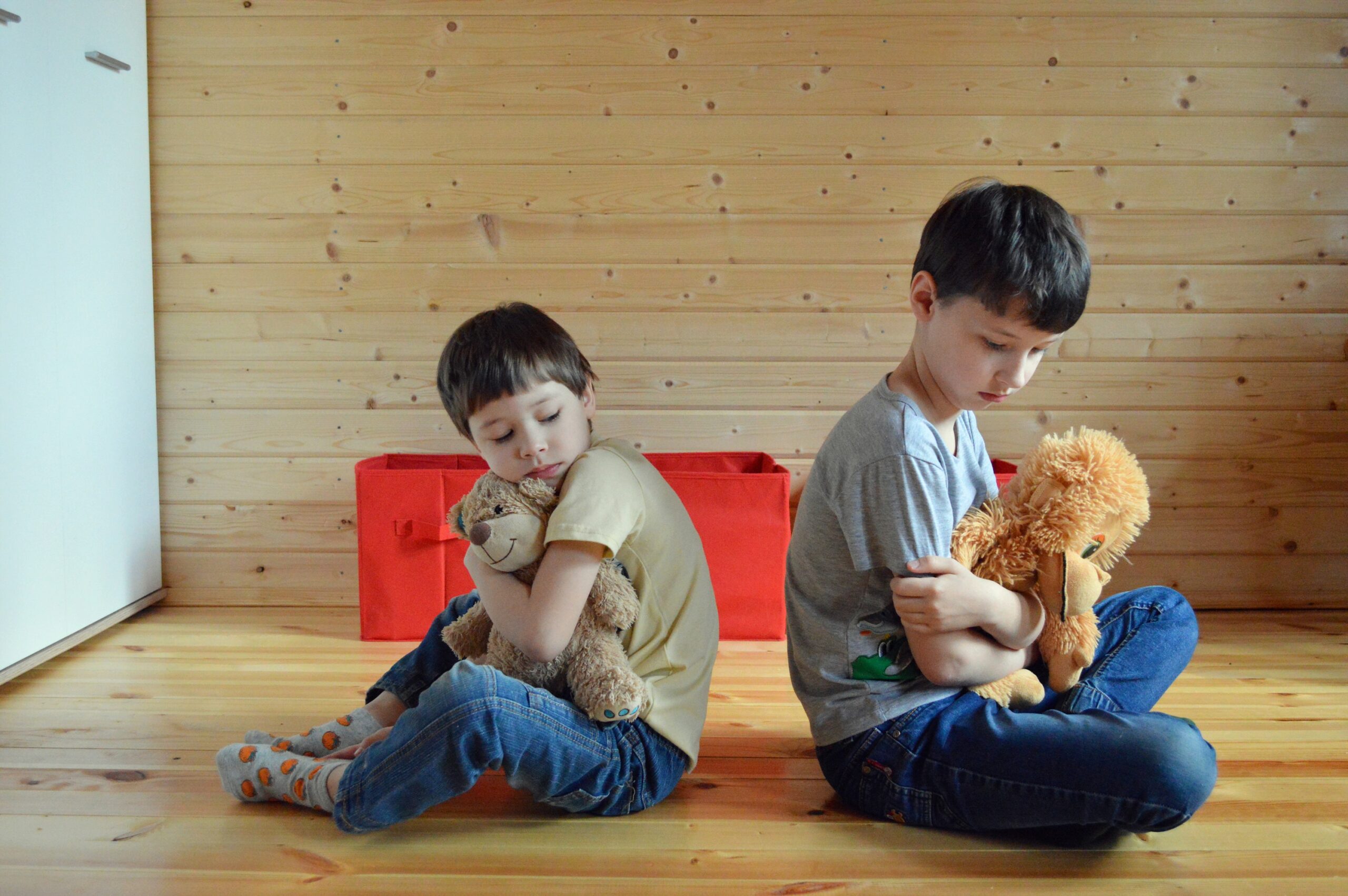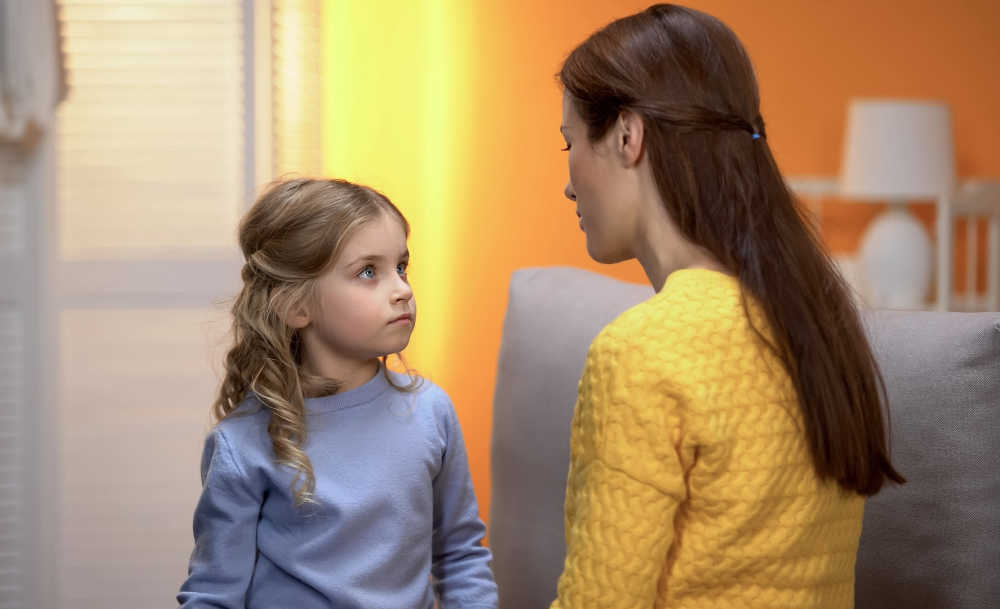Table of Contents
Did you know that lecturing or scolding undermines the effectiveness of our parenting? Find out why as well as how to raise your children well without the use of scolding, chastizing or lecturing.
I am a recovering serial lecturer.
For the longest time, I tried to evoke a sense of urgency and good behavior in my kids by inundating them with words, thinking that I was using positive discipline when in fact I was merely lecturing.
“I told you to get ready. When you don’t listen, we run late. Then you don’t get to play outside before school starts. You know you should do good listening. I’ve already told you so many times.”
I pontificated the value of cleaning up, and I would often lose my temper when my children didn’t clean up their stuff.
“You were supposed to clean up. When you leave your toys around, they can get ruined. It also shows a lack of respect for your belongings. Do you know how you have trouble finding all the pieces for your Lego friends? This is why.” I didn’t notice my child’s body language or how they responded to my lecture, I just kept on talking.
I felt that the more I explained my reasoning, the more likely my own children were to learn how to behave more positively. Despite knowing it was the wrong approach, I could not figure out a better way to do it.

And, I preached the value of kindness, thinking I was using positive discipline.
“Why did you hit your brother? We keep our hands to ourselves and use our words. You’re a good kid and should know better. Look, he’s crying. What are you going to do to make it better?” I asked question after question as my 5-year-old simply looked at me completely overwhelmed and unable to give me an answer to any of them.
In the heat of the moment when they’ve done something wrong, younger children especially have a hard time slowing down and thinking rationally.
Their brains are simply not developed enough to do so.
When my children’s behavior wasn’t positive or they would lose their temper, I resorted to long-winded lectures about how I wanted good behavior and how they shouldn’t be arguing like this. This didn’t help my kids develop positive social relationships or make them happy children, it just annoyed them and made them feel bad.
While I avoided the use of harsh words and chose carefully worded explanations to encourage them to make better choices, at the end of the day, it was still lecturing and scolding.
Related reading: When Children Fight, This is the Opportunity You Won’t Want to Miss
When I had their undivided attention, like in the car, I would do my best to illustrate different examples of morality and explain how to resolve the situation we just faced. My kid’s behavior became a regular topic of discussion as I tried, again and again, to instill good values in them and help them see the error of their ways.
For quite some time, even though it wasn’t yielding the results I wanted, I genuinely thought I was taking the best course of action. I was over-explaining why my children’s behaviour was problematic and thought the more words the more my kids would understand. Never once did I think there would be negative effects to approaching it this way.

I was sorely mistaken…
The more I scolded my children, the less their behaviour improved. In fact, it even got to the point where my son would cover his ears when I would lecture him. Their body language screamed that they were shutting down and not hearing anything that I was telling them. My 2-year-old would even cry harder once I started talking, so it was evident that I was only making things worse.
There more I read books on raising children, listened to parenting tips, and observed my children, it became clear there were much more effective ways to discipline my children. It was time for me to find a different kind of approach to instill good values in my children.
5 reasons scolding your child undermines effective positive discipline:
1. Fewer words are more effective.
In their book, How to Talk so Kids Will Listen and Listen so Kids Will Talk, authors Faber and Malzich illustrate how less talking is, in fact, more. They use examples such as a child forgetting to put away his shoes. Instead of bombarding the child with reasons the shoes should have already been put away, the authors suggest simply saying, “Your shoes” is a sufficient reminder.
Once I started testing this out with my own children, I quickly saw just how effective it was. They knew how I wanted them to behave. A child’s behavior is not always intentional, sometimes they just need a gentle reminder. When disciplining children, the old adage of “less is more” is very relevant. I kept it simple, used minimal language, avoided harsh words, and refrained from big long lectures.
As someone who strives to be a positive parent, it is sometimes a challenge trying to choose the correct form of positive parenting techniques that will teach my children right from wrong without causing them to feel belittled or threatened.
A friend of mine told me about her 7-year-old son who has special needs and requires frequent reminders to complete tasks. Due to his developmental delays, he had difficulty remembering what was asked of him. While she provided reminders, my friend explained that she also set clear boundaries and expectations so that he could learn over time what was expected of him. This way, he learned the skills he needed, and she avoided losing her temper.

2. Children usually realize they’ve made a mistake.
Unless it’s a newer situation or mistake, children know when they have messed up. The truth is my own kids know that they need to get dressed before school, clean up when asked, use kind words and not hurt others. Because of this, lecturing is, at best, redundant, and, at worst, harmful. It just makes them feel guilty, and it takes away their ability to develop a solution independently. There are other ways to help them see where they can improve.
When I realized this, I began talking to my children about what I was seeing in a matter-of-fact way. For example, I may speak quietly to my son and say, “Hey, I notice you haven’t started your home reading yet,” or “You hurt him and seem pretty upset. What happened?”
When I saw that my child’s actions weren’t in line with the behavior I wanted, they were addressed with simple language. Also, when I saw my kids doing what I wanted them to do, I took the time to recognize those and commend my child for making good choices. It was a different kind of approach than what I had been doing before, and my children seemed to respond positively to it.

3. Lecturing reinforces a reactive state of mind.
Though intended to teach, scolding increases defensiveness. As a parent lists off the repercussions of a child’s choices, the child’s brain is no longer in balance. As described by Siegel and Bryson in their book, The Yes Brain Child: How to Cultivate Courage, curiosity and Resilience in Children, lecturing pushes a child out of a receptive mental state. Instead, her brain’s sympathetic system is triggered. Her heart rate accelerates, her breath becomes shorter and her body is tenser. While it is understandable that we want to explain our reasoning to our children, lecturing is not a form of positive discipline.
When I apply this to myself, I think of how I would feel if my husband saw something I forgot to do and used harsh words to chastise me. What would my own emotions be like? Let’s say I forgot to return the library books. My husband sees this and berates me about late fees and how forgetful I tend to be. Instead of feeling inspired to get the books back, I feel threatened, belittled and disrespected, not to mention the psychological effects of this approach. When I lecture, chances are my children feel the same.
Discipline strategies that originate from an authoritative mindset and focus on scolding and berating are no longer socially acceptable, as they often cause significant emotional abuse to children. They make them feel unworthy, unloved, and unable to ever make mistakes. Studies have even shown that this type of negative approach can also cause developmental delays in children. It is imperative that good parents utilize positive discipline strategies that foster confidence, resilience, and problem-solving skills in their kids.
Related reading: How to Discipline a Child: Why Science Says This is the Best Approach

4. Misbehaviour is communication.
Many parents assume that the goal is to extinguish unwanted behaviour, to make it stop or go away. But remember, behaviour is communication. And problematic behaviour is actually a message, where our kids are saying, ‘I need help building skills in this certain area. I can’t do this well yet.’ So the primary focus, when our kids are struggling should be not on getting rid of bad behaviour… but on figuring out what we want to add – the skills to handle things better next time. – Dr. Daniel Seigel and Dr. Tina Payne Bryson, The Yes Brain Child: How to cultivate courage, curiosity and resilience in children
In his book, The Explosive Child, Greene explains that chronic behaviour issues aren’t poor choices but skills that are lagging. Scolding your child fails to identify the child’s issue and fails to collaborate to find a solution. The best recourse is to identify where the child has issues following rules.
For instance, I should find out what triggers my child and when it is that he doesn’t listen? Then, Greene suggests parents and children work together to find ways to bridge the gap between what the child is struggling with and what the desired behavior is.
Now, when my children argue, I refrain from separating them or telling them what to do. Instead, I speak quietly and help give them the words to express how they’re feeling. When I do, tensions dissipate quickly. If I only focus on my child’s actions and negative behavior, it causes harmful psychological effects for my children. They don’t feel heard, understood, or supported during difficult moments. I also lose the opportunity to incorporate positive discipline strategies and help my children develop their problem-solving skills.

5. Moralizing undermines the development of morality.
In her lecture about developing morals in children, ethics professor, Heesoon Bai explains that a child is no longer a moral agent when she is coerced into behaving a certain way (1). When I overload my children with what I want them to do, I am pressuring them to act a certain way. This undermines their development of moral reasoning.
While we want our children to understand right from wrong and to be good people in the world, lecturing them about morals is not a positive technique. There are better ways to instill good morals in our children. We can help them understand their own emotions and how they approach a given situation without lectures.
Related reading: Research says this is how to raise children who want to do the right thing
Here are several positive discipline strategies to raise children well without the use of scolding.
1. Model the behaviour you want to see in your children.
In her lecture about moralizing versus modelling, Bai states that the most powerful means to impart morals is to embody them (1). In their research about the developing brain, Siegel and Payne Bryson echo this, stating that skills develop largely through experience and modelling. They state that where attention goes, neurons fire and establish connections within the brain (2).
So this means:
The more I model calmness, resilience, and kindness, the more I wire my children’s brains to do the same. In-kind, if my children never have experiences related to these traits, their brains will slowly prune away the parts of the brain that would execute those traits (2).
When addressing your child’s behavior, keep in mind what you are modelling in your day-to-day. Your children watch what you do, how you speak, and how you choose to respond to situations. If you model positive behaviors, then your children will learn from that and do the same. Good parents set the stage for how they want their children to act by modelling the desired behavior.
2. Explain your rules and consequences.
Though scolding is ineffective and harmful to a child’s self-esteem, parents should still explain rules and consequences. Just as we must strive to operate between permissive and authoritarian parenting, it is necessary to find the sweet spot between scolding and indifference. We should include our children in the rule-making process, have regular discussions about expectations, and explain why rules exist.
If there is something about your child’s behavior that needs addressing, whether it be the way they talk back to you or how they interact with their siblings, getting their input on the situation will make them feel involved in the problem-solving process, rather than feeling like they are being targeted and/or “picked on”.

So this means, instead of scolding, I should:
- Embody what I want to see in my children while not expecting a perfect child. I need to address their meltdowns with calmness and patience for them to develop these skills. Instead of chronically complaining, I need to highlight the positives in my life.
- Front-load by telling my own children what is expected of them beforehand.
- Answer any questions about the existence of rules as they come out. This way, when my child’s behavior doesn’t match my expectations, we can revisit them together. I don’t expect a perfect child, but I do expect them to learn how to navigate situations in a positive manner.
- Demonstrate the values that are important to me. This includes volunteerism, reaching out and supporting the less fortunate, taking care of the environment, and living a healthy lifestyle.
- Use positive and encouraging language, rather than resorting to lecturing, belittling, or scolding, all of which tend to border on emotional abuse.
Related reading: Research says this is how to execute positive parenting from a position of strength
3. Understand that positive discipline happens calmly and collectively.
When heart rates are up and everyone is tense, that is not the time to address my child’s behavior. No one is receptive to listening and learning how to behave better. Instead, it is my job to wait for better times and more effective ways to communicate. Conversations are best when everyone is calm and that involves dialogue between the parent and child (3).
So this means, instead of scolding, I should:
- Acknowledge how my children feel in the moment. For example, “It’s okay to be mad.”
- Problem-solving together. For instance, “It’s okay to be mad. How can you tell people you’re angry without hurting them?”
- Build skills slowly to bridge the gap between misbehaviour and our household rules, using positive discipline strategies. For example, “I like how you suggested deep breathing and saying, “I’m mad,” when you feel your anger start to take hold. Let’s practice that breathing every night before bed so it becomes more automatic for you.”
- Acknowledge my children’s efforts when they get closer to making the right choices. For example, “I know that was hard to keep your hands to yourself. Instead, you yelled ‘I’m mad.’ You really made an effort there.” Even though it’s not the ideal expression of anger, it’s an improvement from what my child was doing before. When I see good behavior, let my child know that I see it and appreciate it.
- Scaffold my child’s behaviour. The moment I see my daughter about to get angry, I walk over to where they are and offer help finding the words to express themselves.
- Offer reassurance. For instance, I can say, “I will stay with you both until you feel the argument has been resolved.” This way, my children’s behavior is not the focus, and neither one is feeling targeted. Instead, by using positive discipline techniques, they feel supported and enabled to solve the problem themselves.
- Never use emotional abuse, belittling, and /or threats as a way to get my children to listen and behave.
A final note on raising children with positive discipline instead of scolding
None of us have a perfect child, nor are we perfect ourselves. It has taken a lot of effort to see and fix the error of my ways. And, I still make mistakes and get off track. Disciplining children is never an easy task. But, as long as I strive to implement positive discipline techniques on a regular basis, I know that I will continue to learn and grow with my children.
The most important thing for me is to remember why scolding is ineffective and what does work better. Remembering that a child’s behavior is not always intentional but instead is often a sign that they need some support and guidance. I will build my child’s self-esteem by incorporating open communication and opportunities for positive skill-building to help my children learn how to interact with others and solve problems using positive behaviors.
When I remember these positive strategies for disciplining children, my children listen and behave better. Our relationship is also stronger because I am responding to them as a positive parent, with the kindness and respect I want them to have for others. As such, I know I am raising happy children with positive self-esteem who are learning how to navigate social relationships with kindness, compassion, and positive behavior.
Additional reading that will help you execute positive child discipline and positive parenting techniques:
The Yes Brain Child: How to cultivate courage, curiosity and resilience in children
7 Step Parenting Success System
How to Discipline a Child: Why Science Says This is the Best Approach
Time-ins vs. Timeouts: What does the research actually say?
Parenting a Strong-Willed Child: This is the key to it all
Research says this is how to execute positive parenting from a position of strength
















Raising kids is not always easy! I learned a lot by reading this article. I will keep it in my list to be able to read in once in a while because there is a lot of good stuff in there. Thank you so much for sharing this!
Oh you almost had it. You had my attention until the part where you said children get consequences for not following the rules. Non coercive parenting involves getting rid of traditional parenting techniques such as lectures scolding and reward and punishments also known as consequences. For children to feel loved unconditionally you get rid of the common;: “Here are the rules and this is what you get done to you if you dare break them” By doing this you are taking away leaning opportunities and a chance for moral development. This is not positive parenting.
Hi Mark, I would love to know what empircal evidence you have read that suggests that logical consequences (i.e consequences) that are related to the behaviour impede moral development and are not positive parenting. I’m more than willing to read so please send them my way.
There is a saying, you will never train a seal to balance a ball on its nose by scolding it. All it will expect is constant punishment and no insentive to do what is asked. It is always better to ignore bad behaviour or be very specific and consistent how you react to bad actions, reward and reinforce good behaviour consistently and provide positive alternatives. Let your children know exactly what you want but place reasonable limits on your expectations (no mind reading required) by the child and keep to SMART goals. This is very breif without the underlying reasoning. However my children are more happy and successful than I was at that age.